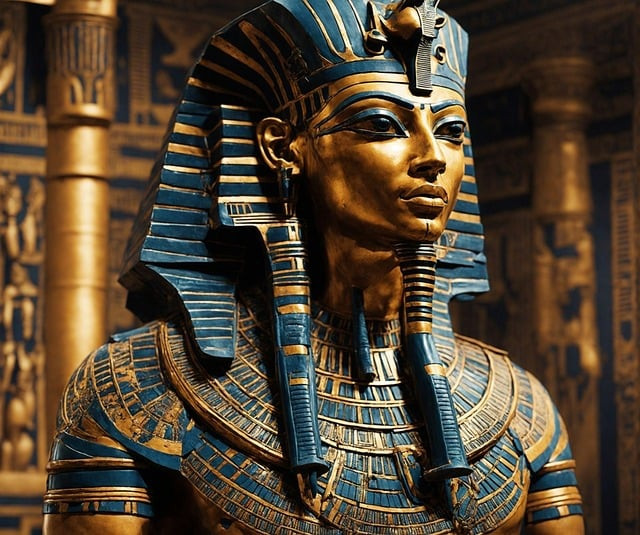
The Grand Egyptian Museum has partially opened its doors to the public, allowing a glimpse into Egypt's 700,000 years of history. The long-awaited museum, located just north of the iconic Pyramids of Giza, hosted its initial opening this week after nearly two decades of delays due to political turmoil, war and the global pandemic.*
Although only a portion of the museum's expansive 5 million square feet is currently accessible, the event has already drawn global attention. The main highlights of the open areas include the Grand Staircase, a six-story architectural marvel with a breathtaking view of the pyramids, and an atrium filled with pharaonic statues and ancient monuments, NBC News reported.
The star of the exhibit is a colossal 3,200-year-old statue of Ramesses the Great, one of the most revered figures in ancient Egyptian history. The statue which stands prominently at the museum's entrance was among the first artifacts transferred to the new facility from the Egyptian Museum in Tahrir Square in 2018.
Renowned Egyptologist Zahi Hawass expressed his excitement, saying, "We spent all this money to build the greatest museum in the world. You will see the objects for the first time in an incredible way."
Once fully open, the Grand Egyptian Museum will be the largest museum dedicated to a single civilization. It will house over 100,000 artifacts from different periods of Egyptian history, categorized into eras such as the Old Kingdom, Middle Kingdom, New Kingdom, and later dynastic periods. The artifacts span a wide range of Egypt's ancient treasures, with plans to include the legendary King Tutankhamun collection in future exhibits, as per CNN.
Despite the ongoing construction, the museum's commercial areas and the Grand Staircase are already open to the public, featuring statues, sarcophagi, and other treasures. The gallery halls are organized chronologically, highlighting the societal, religious, and political facets of ancient Egyptian life.
Each gallery in the museum has been meticulously designed to reflect different eras of Egyptian civilization. From the Third Intermediate Period to the Graeco-Roman Period, the open-style halls will offer a unique perspective into the lives of ancient Egyptians, their leaders, and their society.
The museum also features exhibits on the "Elite of the King," showcasing statues of the royal family and high-ranking officials who served in the military, priesthood, and government.
The Grand Egyptian Museum project, estimated to have cost over $1 billion so far, has been a vision decades in the making. Its development was hindered by a series of setbacks, including political unrest and the COVID-19 pandemic, delaying the overall opening date multiple times.







